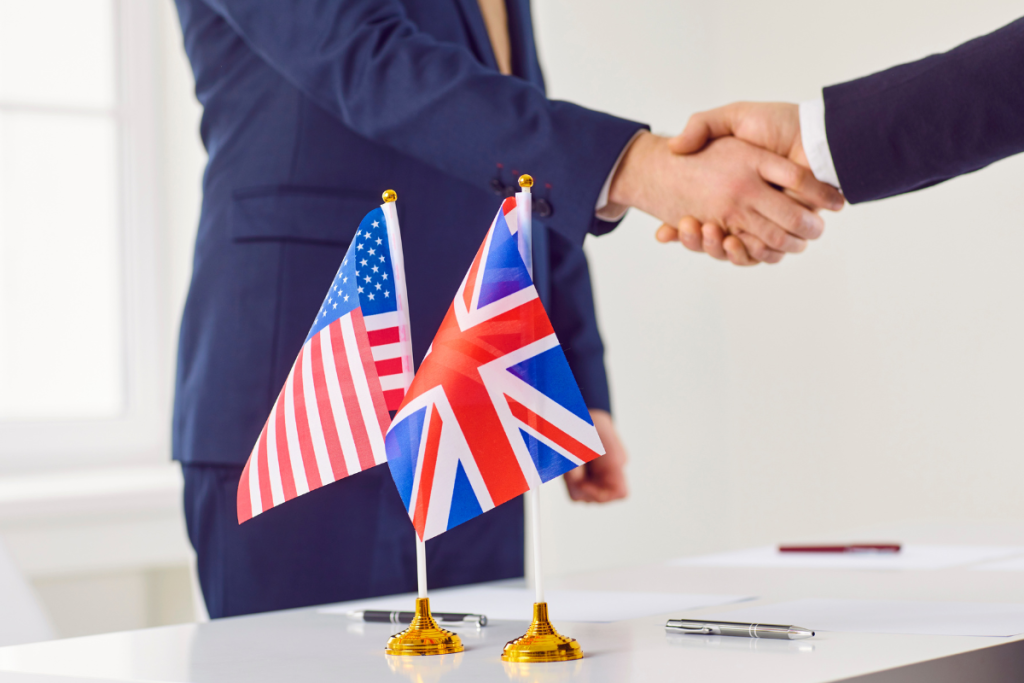At the G7 summit in Alberta, U.S. President Donald Trump and U.K. Prime Minister Keir Starmer finalized a trade deal that eliminates tariffs on aerospace goods and reduces duties on British car exports. The deal gives the U.K. an early exemption from Washington’s broader tariff hikes but leaves steel unresolved ahead of a July 9 deadline.
Tariff Relief for Aerospace, Automakers
Aerospace shipments, Britain’s biggest goods export to the U.S., will move duty-free from 30 June, benefiting Rolls-Royce and a web of Tier-1 suppliers. For autos, the levy falls from 27.5 percent to 10 percent on up to 100,000 vehicles a year, a lifeline for Jaguar Land Rover and other high-end builders that paused U.S. deliveries while waiting for clarity. In return, London agreed to larger quotas on American beef and ethanol, though its ban on hormone-treated meat stays in place.
In remarks made en route to the summit, Starmer indicated the deal was already in the final implementation stage, calling it a matter of formal process. “We’ve shaken on the deal and we’re at the implementing stage now,” he said. The U.K. government is expected to present a written statement in Parliament this week to bring the agreement into force.
Steel Talks Ongoing as Deadline Nears
Unions and producers have welcomed progress on the broader trade deal but cautioned that U.K. steel remains exposed to a 25% U.S. tariff, half the global rate but still high enough to disrupt transatlantic orders if negotiations stall. The Community union called a full exemption “absolutely vital,” warning that missing the July 9 deadline could trigger a jump to 50% tariffs under U.S. global measures.
Under the current framework, steel will move to a quota-based system managed by U.S. Commerce Secretary Howard Lutnick. Access will depend on compliance with “melted-and-poured” origin requirements and national security reviews. That puts the spotlight on Tata Steel’s Port Talbot site, now undergoing furnace upgrades, and on British Steel, where Chinese ownership may complicate eligibility. Industry groups are urging U.K. officials to finalize quota volumes swiftly to provide certainty and protect long-standing trade flows.
Market Access Hinges on More Than Tariffs
For U.K. manufacturers, tariff relief offers immediate breathing room, but long-term competitiveness may depend more on regulatory compatibility than headline rates. U.S. trade policy is increasingly structured around national security considerations, including ownership transparency, data governance, and supply chain traceability. The auto and aerospace sectors are already adjusting to this shift. Steel may be next. Without alignment on these non-tariff conditions, even quota access could be undermined. For firms exporting into the U.S., future-proofing market access may require investing in compliance infrastructure as strategically as they invest in production.







